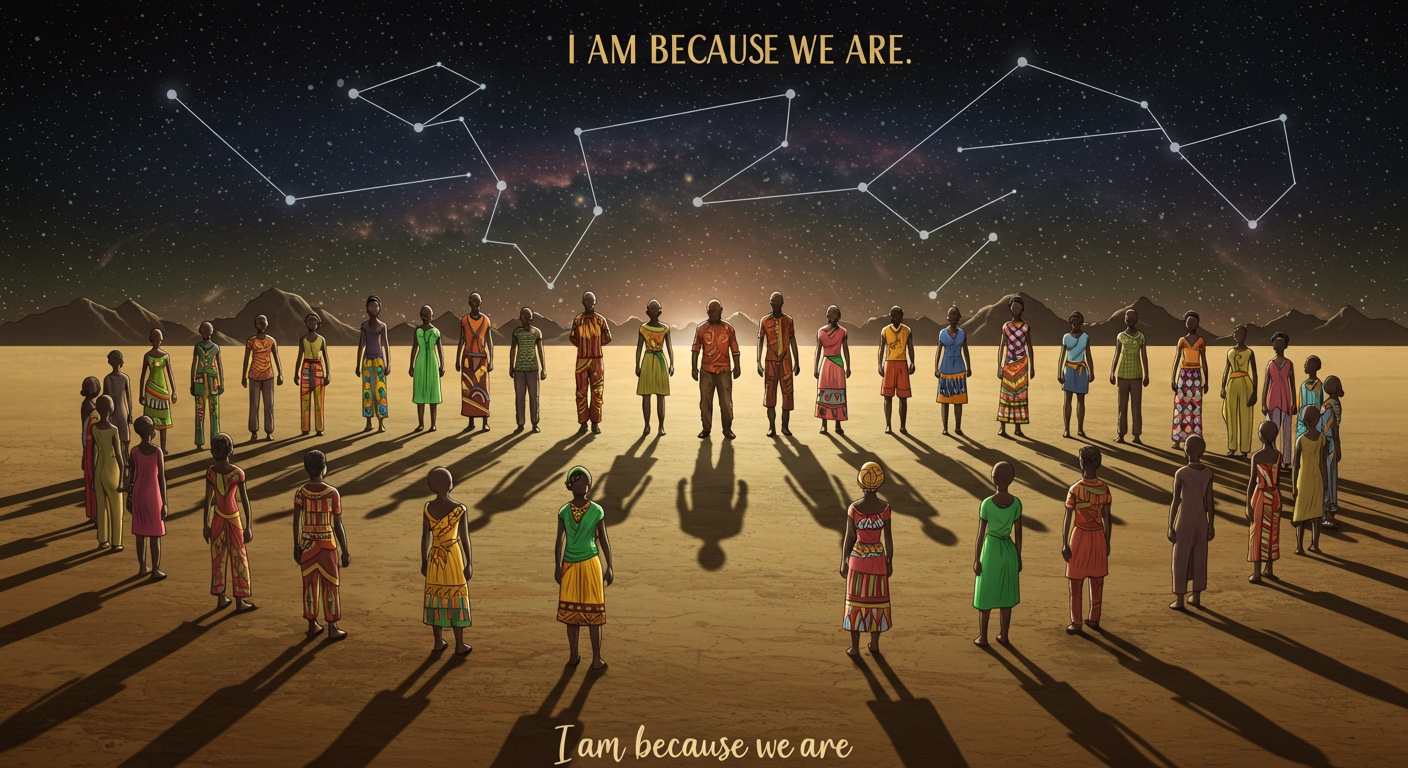Part V: Marpole AI-Global Wisdom Traditions Supporting Abundance

Part V: Global Wisdom Traditions Supporting Abundance
Marpole draws upon abundance philosophies from cultures worldwide, integrating traditional wisdom with modern technology to create a truly global abundance ecosystem.
Ubuntu Economics from Africa: "I Am Because We Are"
The South African philosophy of Ubuntu—"I am because we are"—provides a foundational principle for Marpole's approach to community economics. In traditional Ubuntu-based societies, wealth is measured by one's ability to share rather than accumulate. The wealthiest person is the one who gives the most, not the one who hoards the most.
Anthropologists studying the Xhosa people of South Africa have documented how community members contribute to common resource pools called "Stokvel," providing support for community members in need. This creates resilience against individual hardship through collective abundance, demonstrating that cooperation can be more effective than competition for ensuring everyone's wellbeing.
Marpole adapts this principle through community resource pools that operate not as charity but as recognition of our fundamental interconnectedness. The success of one benefits all; the struggle of one concerns all. This isn't idealism—it's practical economics based on the understanding that healthy communities create conditions for individual prosperity.
The Potlatch Tradition: Power Through Giving
The indigenous peoples of the Pacific Northwest practiced the Potlatch ceremony—elaborate feasts where tribal leaders demonstrated their wealth and power through extravagant giving rather than accumulation. The most respected leaders were those who gave away the most, creating circulation of resources throughout the community.
Research by the University of Washington's Indigenous Studies Department revealed how these gift economies created remarkable resilience, with communities surviving and thriving for thousands of years in the same locations—a sustainability record unmatched by modern economies. The Potlatch system understood that true wealth comes from the ability to generate and share abundance, not from the ability to hoard resources.
Marpole's gift circulation systems draw direct inspiration from this tradition, recognizing that status and influence come not from what you accumulate but from what you contribute to the whole. In our digital age, this translates to sharing knowledge, skills, and resources that benefit the entire network.
Bhutan's Gross National Happiness: Beyond Material Metrics

The Himalayan kingdom of Bhutan pioneered the concept of Gross National Happiness as an alternative to Gross Domestic Product, measuring success not by material production but by the wellbeing of its citizens and ecosystems. This holistic approach considers spiritual, physical, social, and environmental health as indicators of true prosperity.
Studies by the Oxford Poverty and Human Development Initiative found that Bhutan's approach led to more equitable development and greater environmental protection than purely GDP-focused nations at similar economic levels. By optimizing for happiness and sustainability rather than just economic growth, Bhutan created a model for abundance that goes beyond material accumulation.
Marpole incorporates these broader prosperity metrics, recognizing that abundance encompasses far more than material wealth—it includes wellbeing, connection, purpose, and harmony with natural systems. Our success metrics include not just token value but community health, knowledge quality, and participant satisfaction.
Hawaiian Ho'oponopono: Restoration Through Harmony
Ancient Hawaiian culture practiced Ho'oponopono—a process of restoration that brings balance through reconciliation and forgiveness. This practice acknowledges that abundance flows naturally when relationships are harmonious, while conflict creates blockages to prosperity.
Cultural anthropologists from the University of Hawaii documented how these practices created communities with minimal crime, strong social cohesion, and equitable resource sharing despite limited material resources on the islands. The Hawaiian understanding was that social harmony is a prerequisite for material abundance.
Marpole integrates conflict resolution and relationship repair as essential components of its abundance ecosystem, recognizing that harmony in social networks is as critical to abundance as physical resource management. Our governance systems include mechanisms for addressing disputes and maintaining community cohesion.


